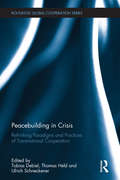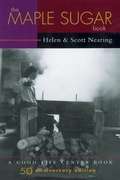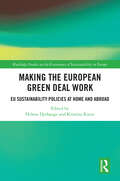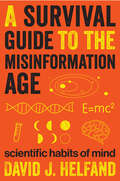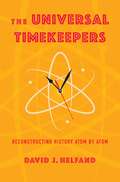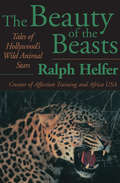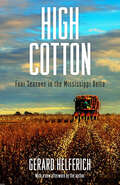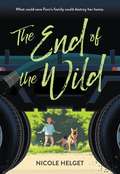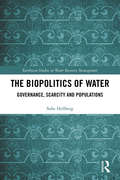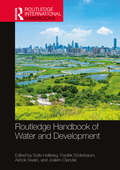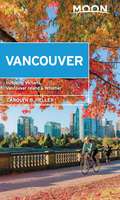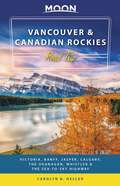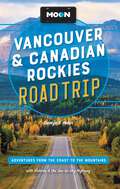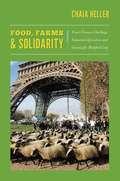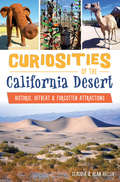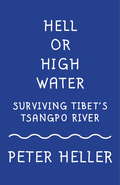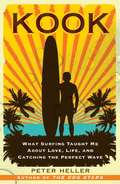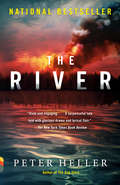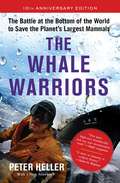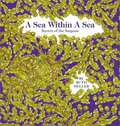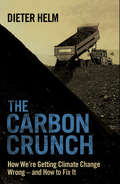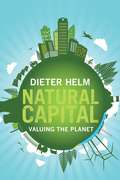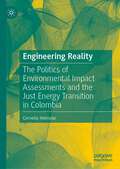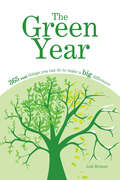- Table View
- List View
Peacebuilding in Crisis: Rethinking Paradigms and Practices of Transnational Cooperation (Routledge Global Cooperation Series)
by Thomas Held Tobias Debiel Ulrich SchneckenerThe 1990s saw a constant increase in international peace missions, predominantly led by the United Nations, whose mandates were more and more extended to implement societal and political transformations in post-conflict societies. However, in many cases these missions did not meet the high expectations and did not acquire a sufficient legitimacy on the local level. Written by leading experts in the field, this edited volume brings together ‘liberal’ and ‘post-liberal’ approaches to peacebuilding. Besides challenging dominant peacebuilding paradigms, the book scrutinizes how far key concepts of post-liberal peacebuilding offer sound categories and new perspectives to reframe peacebuilding research. It thus moves beyond the ‘liberal’–‘post-liberal’ divide and systematically integrates further perspectives, paving the way for a new era in peacebuilding research which is theory-guided, but also substantiated in the empirical analysis of peacebuilding practices. This book will be essential reading for postgraduate students and scholar-practitioners working in the field of peacebuilding. By embedding the subject area into different research perspectives, the book will also be relevant for scholars who come from related backgrounds, such as democracy promotion, transitional justice, statebuilding, conflict and development research and international relations in general.
The Maple Sugar Book
by Helen Scott NearingA half-century ago, the world was trying to heal the wounds of global war. People were rushing to make up for lost time, grasping for material wealth. This was the era of "total electric living," a phrase beamed into living rooms by General Electric spokesman Ronald Reagan. Environmental awareness was barely a gleam in the eye of even Rachel Carson. And yet, Helen and Scott Nearing were on a totally different path, having left the city for the country, eschewing materialistic society in a quest for the self-sufficiency they deemed "the Good Life. " Chelsea Green is pleased to honor their example by publishing a new edition of "The Maple Sugar Book", complete with a new section of never-before-published photos of the Nearings working on the sugaring operation, and an essay by Greg Joly relating the story behind the book and placing the Nearings' work in the context of their neighborhood and today's maple industry. Maple sugaring was an important source of cash for the Nearings, as it continues to be for many New England farmers today. This book is filled with a history of sugaring from Native American to modern times, with practical tips on how to sap trees, process sap, and market syrup. In an age of microchips and software that are obsolete before you can install them, maple sugaring is a process that's stood the test of time. Fifty years after its original publication in 1950, "The Maple Sugar Book" is as relevant as ever to the homestead or small-scale commercial practitioner.
Making the European Green Deal Work: EU Sustainability Policies at Home and Abroad (Routledge Studies on the Governance of Sustainability in Europe)
by Helene Dyrhauge and Kristina KurzeThis book critically analyses different dimensions in the sustainable transitions outlined by the European Green Deal, focusing on both internal actions and external relations and highlighting the EU’s diverging powers and capabilities in achieving the core objectives. As with the Green Deal itself, the chapters cover different policies including financial instruments, energy policies, climate policies and external policies and apply the ideal-type logics of appropriateness and consequences to analyse sustainable transformations. The variety of the cases contribute to a broad understanding of how different actors interpret and implement the aims of the European Green Deal, including especially those lagging behind, who, for various reasons, are struggling with the sustainable transition. From examining their policies, the book illuminates the challenges and opportunities they are facing. Overall, the contributions address key questions surrounding the EU’s powers and limits in inducing transformative change and implementing the European Green Deal. This book will be of key interest to scholars, students and practitioners of EU sustainability policies, sustainability transitions and green economy, environmental studies, energy policy, energy governance and climate change, public policy, comparative politics and international relations.
A Survival Guide to the Misinformation Age: Scientific Habits of Mind
by David HelfandWe live in the Information Age, with billions of bytes of data just two swipes away. Yet how much of this is mis- or even disinformation? A lot of it is, and your search engine can't tell the difference. As a result, an avalanche of misinformation threatens to overwhelm the discourse we so desperately need to address complex social problems such as climate change, the food and water crises, biodiversity collapse, and emerging threats to public health. This book provides an inoculation against the misinformation epidemic by cultivating scientific habits of mind. Anyone can do it—indeed, everyone must do it if our species is to survive on this crowded and finite planet.This survival guide supplies an essential set of apps for the prefrontal cortex while making science both accessible and entertaining. It will dissolve your fear of numbers, demystify graphs, and elucidate the key concepts of probability, all while celebrating the precise use of language and logic. David Helfand, one of our nation's leading astronomers and science educators, has taught scientific habits of mind to generations in the classroom, where he continues to wage a provocative battle against sloppy thinking and the encroachment of misinformation.
The Universal Timekeepers: Reconstructing History Atom by Atom
by David HelfandAtoms are unfathomably tiny. It takes fifteen million trillion of them to make up a single poppy seed—give or take a few billion. And there’s hardly anything to them: atoms are more than 99.9999999999 percent empty space. Yet scientists have learned to count these slivers of near nothingness with precision and to peer into their internal states. In looking so closely, we have learned that atoms, because of their inimitable signatures and imperturbable internal clocks, are little archives holding the secrets of the past.David J. Helfand reconstructs the history of the universe—back to its first microsecond 13.8 billion years ago—with the help of atoms. He shows how, by using detectors and reactors, microscopes and telescopes, we can decode the tales these infinitesimal particles tell, answering questions such as: Is a medieval illustrated prayer book real or forged? How did maize cultivation spread from the highlands of central Mexico to New England? What was Earth’s climate like before humans emerged? Where can we find clues to identify the culprit in the demise of the dinosaurs? When did our planet and solar system form? Can we trace the births of atoms in the cores of massive stars or even glimpse the origins of the universe itself?A lively and inviting introduction to the building blocks of everything we know, The Universal Timekeepers demonstrates the power of science to unveil the mysteries of unreachably remote times and places.
The Beauty of the Beasts: Tales of Hollywood's Wild Animal Stars
by Ralph HelferA trainer shares true stories of famous lion, orangutan, and other animal actors that &“will hold readers enthralled&” (School Library Journal). They are major stars who do not speak a word onscreen, yet are world famous for their compelling performances. Who are they? The animal stars of the big screen, of course! In The Beauty of the Beasts, Ralph Helfer shares with the reader his love of animals and his work with some of Hollywood&’s biggest stars: Clarence the Cross‑Eyed Lion, Gentle Ben, the Schlitz Malt Liquor Bull, Clint Eastwood&’s orangutan sidekick Clyde, and many more. Helfer shares his philosophy on training these beautiful beasts to do amazing feats and maximize their acting potential without coercion. Join Ralph Helfer in his exploration of animal acting and read of his masterful use of TLC to work with these phenomenal, non‑human actors.
High Cotton: Four Seasons in the Mississippi Delta (Banner Books)
by Gerard HelferichThis dirt-under-the-fingernails portrait of a small-time farmer follows Zack Killebrew over a single year as he struggles to defend his cotton against such timeless adversaries as weeds, insects, and drought, as well as such twenty-first-century threats as globalization. Over the course of the season, Helferich describes how this singular crop has stamped American history and culture like no other. Then, as Killebrew prepares to harvest his cotton, two hurricanes named Katrina and Rita devastate the Gulf Coast and barrel inland. Killebrew's tale is at once a glimpse into our nation's past, a rich commentary on our present, and a plain-sighted vision of the future of farming in the Mississippi Delta.On first publication, High Cotton won the Authors Award from the Mississippi Library Association. This updated edition includes a new afterword, which resumes the story of Zack Killebrew and his family, discusses how cotton farming has continued to change, and shows how the Delta has retained its elemental character.
Understanding Environmental Policy Convergence
by Helge Jörgens Andrea Lenschow Duncan Liefferink Helge Jörgens Andrea LenschowOver recent decades national environmental policies have become increasingly alike. This book analyses the driving forces of this process of policy convergence, providing an in-depth empirical analysis of the international forces at work. It does so by investigating how four countries – France, Hungary, Mexico and the Netherlands – have shaped their domestic environmental policies in the context of international institutions and relationships, while taking into account various domestic factors and national conditions. Employing a qualitative approach, the authors seek to deepen understanding of the processes and mechanisms through which international forces such as legal harmonisation, institutionalised information flows and global trade dynamics affect domestic environmental policy change. Together with its companion volume Environmental Policy Convergence in Europe: The Impact of Trade and International Institutions (2008) this book provides a 'showcase' of mixed methodologies, combining quantitative and qualitative approaches in an innovative way.
The End of the Wild
by Nicole HelgetA modern, beautifully written story set against the backdrop of the controversial issue of fracking that explores the timely themes of poverty, environmental protection, what makes a family, and finding your place in the world.Eleven-year-old Fern's rundown home borders a pristine forest, where her impoverished family hunts and forages for food. It's also her refuge from the crushing responsibility of caring for her wild younger brothers and PTSD-stricken stepfather. But when a fracking company rolls into town, Fern realizes that her special grove could be ripped away, and no one else seems to care.Her stepfather thinks a job with the frackers could help pull the family out of poverty. Her wealthy grandfather--who wants to take custody of Fern and her brothers--likes the business it brings to his manufacturing company. Facing adversity from all sides, can one young girl make a difference in the fate of her family and their way of life?
The Biopolitics of Water: Governance, Scarcity and Populations (Earthscan Studies in Water Resource Management)
by Sofie HellbergBiopolitics refers to a form of politics concerned with administering and regulating the conditions of life at an aggregated level of populations. This book provides a biopolitical perspective on water governance and its effects. It draws on the work of Foucault to explore how notions of scarcity are used in strategies of governance and how such governance differentiates between different populations. Furthermore, the author investigates what such biopolitical regulation means for people’s lifestyles and the way they understand themselves and their moral responsibilities as humans, individuals and citizens. The book begins by investigating the global water agenda, with a particular emphasis on its focus on water for basic needs, and provides different examples of hydromentalities around the world. It also presents rich empirical details of one local case in South Africa. By carefully exploring the water 'stories' of water users, the book provides new perspectives on the relationship between water and power. Additionally, it offers an innovative methodological framework through which we can study the workings of governance more generally, and water governance specifically. It thereby contributes to the scholarship on water governance in relation to how water governance and technologies are part of producing subjectivities, notions of life and lifestyles and, more specifically, how the global water agenda can work so as to produce, or further entrench, distinctions between different lives and lifestyles. Ultimately, such differences between individuals and populations that are produced as an effect of water governance are assessed in relation to social sustainability.
Routledge Handbook of Water and Development (Routledge International Handbooks)
by Sofie Hellberg Fredrik Söderbaum Ashok Swain Joakim ÖjendalWater is essential for human life and at the centre of political, economic, and socio-cultural development. This Routledge Handbook of Water and Development offers a systematic, wide-ranging, and state-of-the-art guide to the diverse links between water and development across the globe. It is organized into four parts: Part I explores the most significant theories and approaches to the relationship between water and development. Part II consists of carefully selected in-depth case studies, revealing how water utilization and management are deeply intertwined with historical development paths and economic and socio-cultural structures. Part III analyses the role of governance in the management of water and development. Part IV covers the most urgent themes and issues pertaining to water and development in the contemporary world, ranging from climate change and water stress to agriculture and migration. The 32 chapters by leading experts are meant to stimulate researchers and students in a wide range of disciplines in the social and natural sciences, including Geography, Environmental Studies, Development Studies, and Political Science. The Handbook will also be of great value to policymakers and practitioners.
Moon Vancouver: Neighborhood Walks, Outdoor Adventures, Beloved Local Spots (Travel Guide)
by Carolyn B. HellerSet on the edge of the Pacific and bursting with culture and life, Vancouver is a delight to explore. Immerse yourself in the best of the city with Moon Vancouver.Explore the City: Navigate by neighborhood or by activity with color-coded maps, or follow one of our self-guided neighborhood walksSee the Sights: Bike along the coast at Stanley Park, kayak local waterways, learn about indigenous history at the Vancouver Museum of Anthropology, and soak in gorgeous nature views from atop Grouse MountainGet a Taste of the City: Sip a perfect pour-over coffee, browse the artistically arranged stalls at the Granville Island Public Market, or dig into some of the best Chinese food in North America Bars and Nightlife: Sample local craft beer, enjoy cocktails on lush patios or in cozy speakeasies, and plug into Vancouver's artsy side with an eclectic lineup of everything from indie rock to world musicLocal Advice: Vancouver expert Carolyn B. Heller shares her favorite places in her adopted cityStrategic Itineraries: See the best of Vancouver with itineraries designed for families, gourmands, history buffs, nature-lovers, and artists, with day trips to Victoria, Vancouver Island, and WhistlerFull-Color Photos and Detailed Maps, so you can explore on your own, plus an easy-to-read foldout map to use on the goHandy Tools: Background information on the landscape, history, and culture, packaged in a book slim enough to fit in your coat pocketExperience the real Vancouver with Moon's practical tips and insider know-how. Hitting the road? Check out Moon Vancouver & Canadian Rockies Road Trip.
Moon Vancouver & Canadian Rockies Road Trip: Victoria, Banff, Jasper, Calgary, the Okanagan, Whistler & the Sea-to-Sky Highway (Travel Guide)
by Carolyn B. HellerFrom the ocean to the mountains, go off the beaten path and into the heart of Western Canada with Moon Vancouver & Canadian Rockies Road Trip. Eat, Sleep, Stop and Explore: With lists of the best trails, views, and more, you can hike the Rocky Mountains, canoe in Lake Louise, and snorkel with seals in the Pacific. Explore one of Vancouver's many parks, soak up the surfer vibe in Tofino, or go wine-tasting in the OkanaganFlexible Itineraries: Drive the entire two-week road trip or follow strategic routes like a week-long drive along the coast of British Columbia, as well as suggestions for spending time in Victoria, Vancouver, Banff, Lake Louise, Jasper, and the Okanagan Maps and Driving Tools: 49 easy-to-use maps keep you oriented on and off the highway, along with site-to-site mileage, driving times, detailed directions for the entire route, and full-color photos throughoutLocal Expertise: Seasoned road-tripper and Canadian Carolyn B. Heller shares her passion for the mountains, shores, and rich history of Vancouver and the Canadian Rockies How to Plan Your Trip: Know when and where to get gas and how to avoid traffic, plus tips for driving in different road and weather conditions and suggestions for LGBTQ travelers, seniors, and road-trippers with kidsWith Moon Vancouver & Canadian Rockies Road Trip's practical tips, flexible itineraries, and local know-how, you're ready to fill up the tank and hit the road.Looking to explore more of North America on wheels? Try Moon Pacific Northwest Road Trip. Hanging out for a while? Check out Moon Vancouver, Moon British Columbia, or Moon Canadian Rockies.
Moon Vancouver & Canadian Rockies Road Trip: Adventures from the Coast to the Mountains, with Victoria and the Sea-to-Sky Highway (Travel Guide)
by Carolyn B. HellerFrom the ocean to the mountains, go off the beaten path and into the heart of Western Canada with Moon Vancouver & Canadian Rockies Road Trip. Flexible itineraries: Drive the entire two-week road trip or follow strategic routes, like a week-long drive along the coast of British Columbia, with suggestions for shorter getaways to Victoria, Vancouver, Banff, Lake Louise, Jasper, and the Okanagan Eat, sleep, stop and explore: With lists of the best trails, views, and more, you can hike the Rocky Mountains, canoe in Lake Louise, and snorkel with seals in the Pacific. Explore one of Vancouver's many parks, soak up the surfer vibe in Tofino, or go wine-tasting in the Okanagan Maps and driving tools: 49 easy-to-use maps keep you oriented on and off the highway, along with site-to-site mileage, driving times, detailed directions for the entire route, and full-color photos throughout Local expertise: Seasoned road-tripper and Vancouver local Carolyn B. Heller shares her passion for the mountains, shores, and rich history of Vancouver and the Canadian Rockies Planning your trip: Know when and where to get gas, how to avoid traffic, and tips for driving in different road and weather conditions With Moon Vancouver & Canadian Rockies Road Trip's practical tips, flexible itineraries, and local know-how, you're ready to fill up the tank and hit the road. Looking to explore more of North America on wheels? Try The Open Road.About Moon Travel Guides: Moon was founded in 1973 to empower independent, active, and conscious travel. We prioritize local businesses, outdoor recreation, and traveling strategically and sustainably. Moon Travel Guides are written by local, expert authors with great stories to tell—and they can't wait to share their favorite places with you. For more inspiration, follow @moonguides on social media.
Food, Farms, and Solidarity: French Farmers Challenge Industrial Agriculture and Genetically Modified Crops (New ecologies for the twenty-first century)
by Chaia HellerThe Confédération Paysanne, one of France's largest farmers' unions, has successfully fought against genetically modified organisms (GMOs), but unlike other allied movements, theirs has been led by producers rather than consumers. In Food, Farms, and Solidarity, Chaia Heller analyzes the group's complex strategies and campaigns, including a call for a Europe-wide ban on GM crops and hormone-treated beef, and a protest staged at a McDonald's. Her study of the Confédération Paysanne shows the challenges small farms face in a postindustrial agricultural world. Heller also reveals how the language the union uses to argue against GMOs encompasses more than the risks they pose; emphasizing solidarity has allowed farmers to focus on food as a cultural practice and align themselves with other workers. Heller's examination of the Confédération Paysanne's commitment to a vision of alter-globalization, the idea of substantive alternatives to neoliberal globalization, demonstrates how ecological and social justice can be restored in the world.
Curiosities of the California Desert: Historic, Offbeat & Forgotten Attractions
by Claudia HellerOne might not expect to find much in the middle of California's hot, dry deserts. But to the curious explorer, they're scattered with strange and extraordinary sights. On old Route 66, the desert traveler can find quirky roadside art and mementos left by motorists. In the El Paso Mountains of the Mojave, the daring adventurer can crawl through a tunnel that was hand dug by an old prospector named Burro Schmidt. In Landers, the weary wanderer can enjoy a rejuvenating "sound bath" in an acoustically perfect dome supposedly designed by aliens. From astounding natural wonders to remnants of ancient civilizations and the Wild West, discover treasures of history, puzzling mystery and uncommon eccentricity alongside seasoned road trippers Alan and Claudia Heller.
Hell or High Water: Surviving Tibet's Tsango River (Vintage Departures)
by Peter HellerFrom the bestselling author of The Dog Stars, the true story of an elite kayaking team's heroic conquest of the world&’s last great adventure prize: Tibet's Tsangpo River. The Tsangpo Gorge in southeastern Tibet has lured explorers and adventurers since its discovery. Sacred to the Buddhists, the inspiration for Shangri La, the Gorge is as steeped in legend and mystery as any spot on earth. As a river-running challenge, the remote Tsangpo is relentlessly unforgiving, more difficult than any stretch of river ever attempted. Its mysteries have withstood a century's worth of determined efforts to explore it's length. The finest expedition paddlers on earth have tried. Several have died. All have failed. Until now. In the heart of the Himalayan winter, a team of seven kayakers launched a meticulously planned assault of the Gorge. The paddlers were river cowboys, superstars in the universe of extreme kayaking. Accompanying them was author Peter Heller, a world-class kayaker in his own right. Filled with history, white-knuckle drama, and mutiny in one of the world's most storied-and remote-locations, Hell or High Water is the riveting story of this adventure. Look for Peter Heller's new novel, The Last Ranger, coming soon!
Kook: What Surfing Taught Me About Love, Life, and Catching the Perfect Wave
by Peter HellerAuthor of the New York Times bestselling novel The Dog Stars With grit, poetry, and humor, Peter Heller, acclaimed author of The Whale Warriors recounts his remarkable journey of discovery--of surfing, an entirely new challenge; of the ocean's beauty and power; of the strange surf subculture; of love; and, most of all, of how to seek adventure while crafting a meaningful life. Having resolved to master a big-hollow wave-- that is, to go from kook (surfese for beginner) to shredder--in a single year, Heller travels from Southern California down the coast of Mexico in the company of his girlfriend and the eccentric surfers they meet. Exuberant and fearless, Heller explores the technique and science of surfing the secrets of its culture, and the environmental ravages to the stunning coastline he visits. As Heller plumbs the working of his own heart and finds joy in both love and surfing, he affords readers vivid insight into this fascinating world, with all of its perils and pleasures, its absurdity and wonder. Exhilarating, entertaining, and moving, Kook is a love story between a man and his surfboard, a man and his girlfriend, a not-so-old man and the sea.
The River: A novel (Vintage Contemporaries Ser.)
by Peter HellerNATIONAL BESTSELLER • From the author of The Guide and The Dog Stars comes the story of two college students on a wilderness canoe trip—a gripping tale of a friendship tested by fire, white water, and violence."A fiery tour de force … I could not put this book down. It truly was terrifying and unutterably beautiful."—The Denver PostWynn and Jack have been best friends since college orientation, bonded by their shared love of mountains, books, and fishing. Wynn is a gentle giant, a Vermont kid never happier than when his feet are in the water. Jack is more rugged, raised on a ranch in Colorado where sleeping under the stars and cooking on a fire came as naturally to him as breathing. When they decide to canoe the Maskwa River in northern Canada, they anticipate long days of leisurely paddling and picking blueberries, and nights of stargazing and reading paperback Westerns. But a wildfire making its way across the forest adds unexpected urgency to the journey. One night, with the fire advancing, they hear a man and woman arguing on the fog-shrouded riverbank; the next day, a man appears on the river, paddling alone. Is this the same man they heard? And if he is, where is the woman? From this charged beginning, master storyteller Peter Heller unspools a headlong, heart-pounding story of desperate wilderness survival. Look for Peter Heller's new novel, The Last Ranger, coming soon!
The Whale Warriors
by Peter HellerFor the crew of the eco-pirate ship the Farley Mowat, any day saving a whale is a good day to die. In The Whale Warriors, veteran adventure writer Peter Heller takes us on a hair-raising journey with a vigilante crew on their mission to stop illegal Japanese whaling in the stormy, remote seas off the forbidding shores of Antarctica. The Farley is the flagship of the Sea Shepherd Conservation Society and captained by its founder, the radical environmental enforcer Paul Watson. The Japanese, who are hunting endangered whales in the Southern Ocean Whale Sanctuary, in violation of several international laws, know he means business: Watson has sunk eight whaling ships to the bottom of the sea. For two months, Heller was aboard the vegan attack vessel as it stalked the Japanese whaling fleet through the howling gales and treacherous ice off the pristine Antarctic coast. The ship is all black, flies under a Jolly Roger, and is outfitted with a helicopter, fast assault Zodiacs, and a seven-foot blade attached to the bow, called the can opener. As Watson and his crew see it, the plight of the whales is also about the larger crisis of the oceans and the eleventh hour of life as we know it on Earth. The exploitation of endangered whales is emblematic of a terrible overexploitation of the seas that is now entering its desperate denouement. The oceans may be easy to ignore because they are literally under the surface, but scientists believe that the world's oceans are on the verge of total ecosystem collapse. Our own survival is in the balance. With Force 8 gales, monstrous seas, and a crew composed of professional gamblers, Earthfirst! forest activists, champion equestrians, and ex-military, the action never stops. In the ice-choked water a swimmer has minutes to live. The Japanese factory ship is ten times the tonnage of the Farley. The sailors on board both ships know that there will be no rescue in this desolate part of the ocean. Watson presses his enemy while Japan threatens to send down defense aircraft and warships, Australia appeals for calm, New Zealand dispatches military surveillance aircraft, the U.S. Office of Naval Intelligence issues a piracy warning, and international media begin to track the developing whale war. For the Sea Shepherds there is no compromise. If the charismatic, intelligent Great Whales cannot be saved, there is no hope for the rest of the planet. Watson aims his ship like a slow torpedo and gives the order: "Tell the crew, collision in two minutes." In 35-foot seas, it is a deadly game of Antarctic chicken in which the stakes cannot be higher.
A Sea Within a Sea: Secrets of the Sargasso
by Ruth HellerThis 32-page hardcover book is fully illustrated in Heller's signature style -- elaborate details, bright colors, and bold pictures. The Sargasso Sea is a natural mystery. It is a warm "sea within a sea" in the midst of the cold Northern Atlantic Ocean where whirlpool-like currents have been said to becalm ships forever. Underneath huge tangles of seaweed are Men-O-War, jellyfish, turtles, fish, and eels. Each spread elaborately describes and depicts a characteristic of this complex and exciting watery habitat.
The Carbon Crunch: How We're Getting Climate Change Wrong—and How to Fix It
by Dieter HelmAn economist&’s take on &“why the world&’s efforts to curb the carbon dioxide emissions behind global warming have gone so wrong, and how it can do better&” (Financial Times). Despite commitments to renewable energy and two decades of international negotiations, global emissions continue to rise. Coal, the most damaging of all fossil fuels, has actually risen from 25% to almost 30% of world energy use. And while European countries congratulate themselves on reducing emissions, they&’ve increased their carbon imports from China and other developing nations, who continue to expand their coal use. As standards of living improve in developing countries, coal use can only increase as well—and global temperatures along with it. Written by an Oxford economist who specializes in environmental issues, this book goes beyond pieties and pipe dreams to address the practical realities that are preventing us from making progress on this crucial issue—and what we can do differently before it&’s too late. &“Should be compulsory reading for the entire political class as well as the bureaucratic elite and the commentariat.&”—New Statesman &“An optimistically levelheaded book about actually dealing with global warming.&”—Kirkus Reviews (starred review) &“A powerful and heartfelt plea for hard-nosed realism.&”—New Scientist
Natural Capital
by Dieter HelmNatural capital is what nature provides to us for free. Renewables like species keep on coming, provided we do not drive them towards extinction. Non-renewables like oil and gas can only be used once. Together, they are the foundation that ensures our survival and well-being, and the basis of all economic activity. In the face of the global, local, and national destruction of biodiversity and ecosystems, economist Dieter Helm here offers a crucial set of strategies for establishing natural capital policy that is balanced, economically sustainable, and politically viable. Helm shows why the commonly held view that environmental protection poses obstacles to economic progress is false, and he explains why the environment must be at the very core of economic planning. He presents the first real attempt to calibrate, measure, and value natural capital from an economic perspective and goes on to outline a stable new framework for sustainable growth. Bristling with ideas of immediate global relevance, Helm s book shifts the parameters of current environmental debate. As inspiring as his trailblazing "The Carbon Crunch," this volume will be essential reading for anyone concerned with reversing the headlong destruction of our environment. "
Engineering Reality: The Politics of Environmental Impact Assessments and the Just Energy Transition in Colombia
by Cornelia HelmckeEngineering Reality offers unprecedented insights into the power of environmental impact assessments in engineering a reality favourable to any investment, focusing on the highly contested environmental study of a large hydroelectric dam project in southern Colombia, El Quimbo. The inclusion of environmental impact assessments to project proposals of environmental influence has been an undeniably important step to environmental governance in many countries around the world. Regarding the science behind these studies as objective and their results as the closest in representing reality, however, is misleading. Many activists and scholars made it their mission to uncover the limitations and work towards filling the gaps. Participation processes are considered key to any successful evaluation, but local knowledges and alternative perspectives are still often disqualified through more widely accepted scientific methods. Engineering Reality systematically walks through and accounts for the shortcomings and injustices associated with environmental monitoring. It compares the reality as presented in the dam’s environmental impact study with first-hand accounts from the local and affected populations and observations gathered through two periods of fieldwork in 2012 (before) and 2016-17 (after the dam started operating). It explores how the knowledge of the study was used politically and to what end. Bringing the findings in conversation with the wider environmental impact assessment literature, the book proposes a new framework to assess energy projects -Energy Data Justice- that regards the environmental impact assessment a strictly political tool aimed at reaching the just energy transition in Colombia and worldwide.
The Green Year: 365 Small Things You Can Do to Make a Big Difference
by Jodi HelmerGo green one day at a time. Do something every day. Most of us want to do the right thing for the environment, but making the commitment to change our fast-paced, convenience-oriented lifestyles can be more than a little daunting. What&’s the answer? Take that giant commitment and cut it up into 365 little commitments that get met one day at a time. The Green Year does just that. More than a calendar, it offers simple, practical, affordable, and engaging activities that make going green a blessing rather than a burden. In addition to these easy green suggestions, readers will find in The Green Year: • The &“why&” behind each activity—what makes it good for the environment and the reader? • A quick &“how-to&” for any activity that requires it • Room for readers to write in their own creative alternatives • Helpful illustrations
